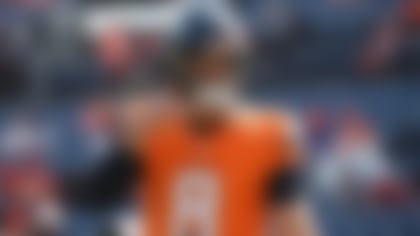The morning began as most mornings do with the Detroit Lions. Head coach Matt Patricia stood before the players and opened up the floor for discussion about anything on the guys' minds. Within minutes, it was obvious that this was not a morning like most other mornings. Football had taken a backseat to life.
On Sunday night, Jacob Blake, an unarmed Black man, was shot at point-blank range seven times in the back by a Kenosha, Wisconsin, police officer as he leaned into his SUV while his three children sat in the vehicle. The video went viral on Monday, and by Tuesday morning, it hung in the air as the Lions gathered for practice.
When Patricia opened the floor, an intense discussion ensued about police brutality against people of color. The team had had the same discussion during the offseason, but that was virtually. On Tuesday, they could see each other in person. They could feel the emotion. The situation was more real. More raw.
Patricia realized this and canceled practice. The players then gathered in front of the training facility and flanked both sides of a large white board on which their feelings were printed in blue block letters: THE WORLD CAN'T GO ON!
"We got together as a team and felt that this was something that just can't be talked about anymore without being recognized," guard Oday Aboushi told me later in the day by phone. "It was something that really shook a lot of guys. It's a fear that a lot of guys live with every day, a lot of my teammates live with every day who are Black. It's something where a simple drive to work can be dangerous for some guys on my team.
"At the end of the day, I don't deal with that same type of thought process, I don't deal with that same kind of injustice, but these guys truly live it. For families to live that, and for my teammates to have that as a reality for them, is really heart-crushing and it's something that, at the end of the day, everybody on the team should really identify with -- the amount of hurt and injustice that is right there."
I've seen a lot and heard a lot during my nearly three decades covering the NFL, and seeing the picture of the Lions players in front of the building, next to that white board, gave me goosebumps. Blake is not a member of their nuclear family, and yet, it was as if he were one of them. They wanted to take up his cause because they felt it was their cause. Black or white, younger or older, urban or suburban, established or on the bubble -- it didn't matter. They were one.
The powerful moment was affirmation that we are witnessing a sea change in the NFL. Players are realizing there is power not only in their words, but also their unity -- and franchises are having to respond in kind. The whole football is what I do, not who I am is no longer just a cliche.
"When I got into coaching a number of years ago and decided to coach football and leave engineering, one of the biggest things to me and the biggest factors for me was trying to make a difference in people's lives and trying to just really be there," Patricia told reporters Tuesday. "I know certainly that the coaches in my life helped me grow as a young person, and certainly my dad who was a coach -- that was big also. ... Football is great. I love it. It's my passion. It's everything that I think about all the time, competing at the highest level. But it's about people, it's about relationships, it's about trying to help those who need help in any facet whether if it's on or off the field. And it's to listen."
As much as some might be skeptical that a sea change is taking place within the league, moments like Tuesday lead me to believe that there is no turning back. This new reality is one that owners and league officials will have to adjust to, particularly as it relates to the fight for social justice and racial equality.
"One thing we always stressed to each other as athletes is the power of the platform we have and the effect it could have on people, and the situations and people it could bring light to," Aboushi said. "More than ever, that means something now: Not only protect your platform and don't say the wrong thing, but use your platform for good and to continue to bring change and give people who don't necessarily have a voice or don't have that hope -- give them hope of potential change."












